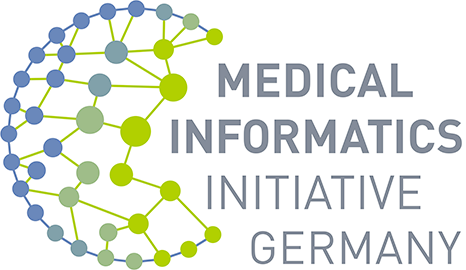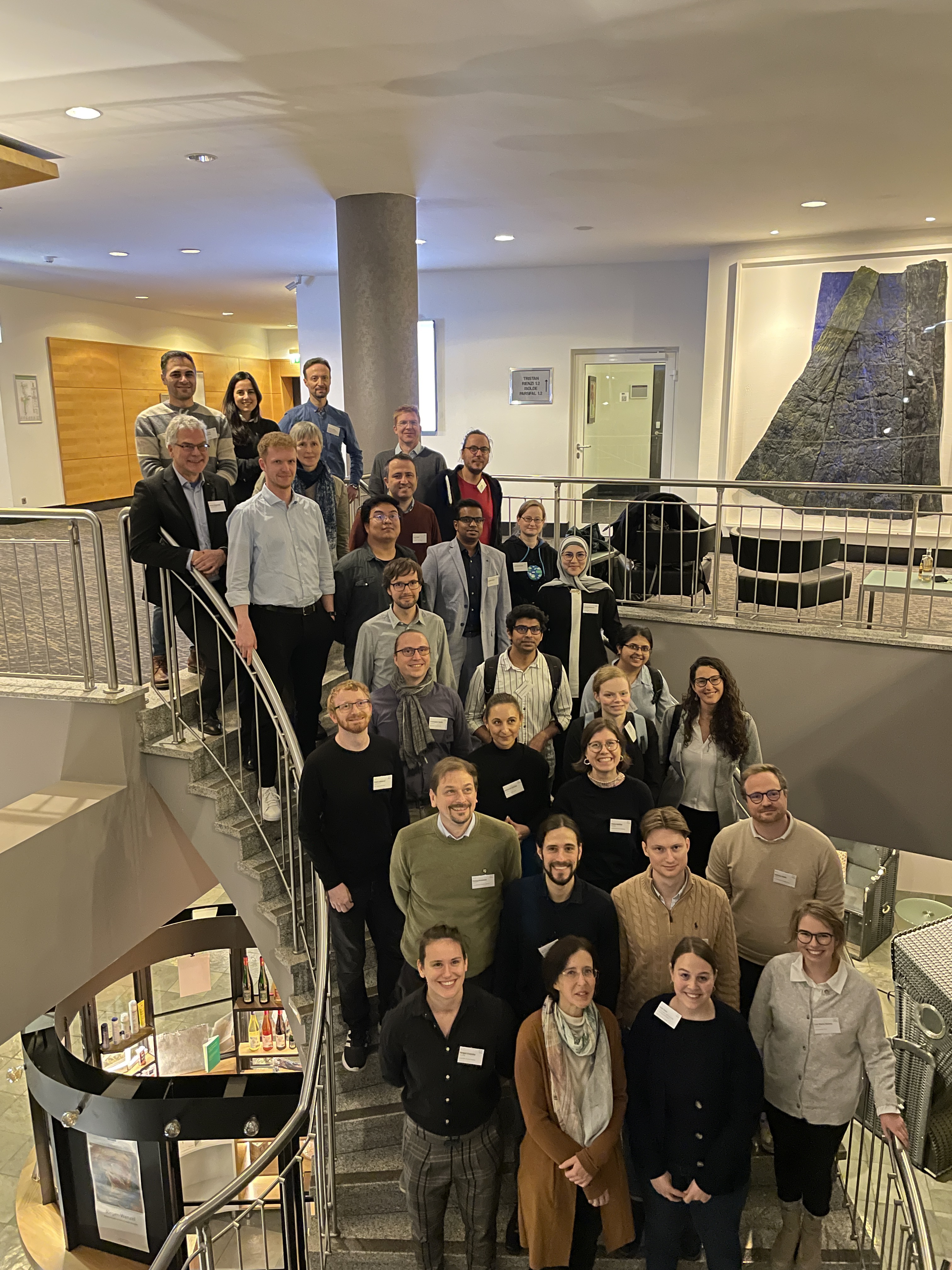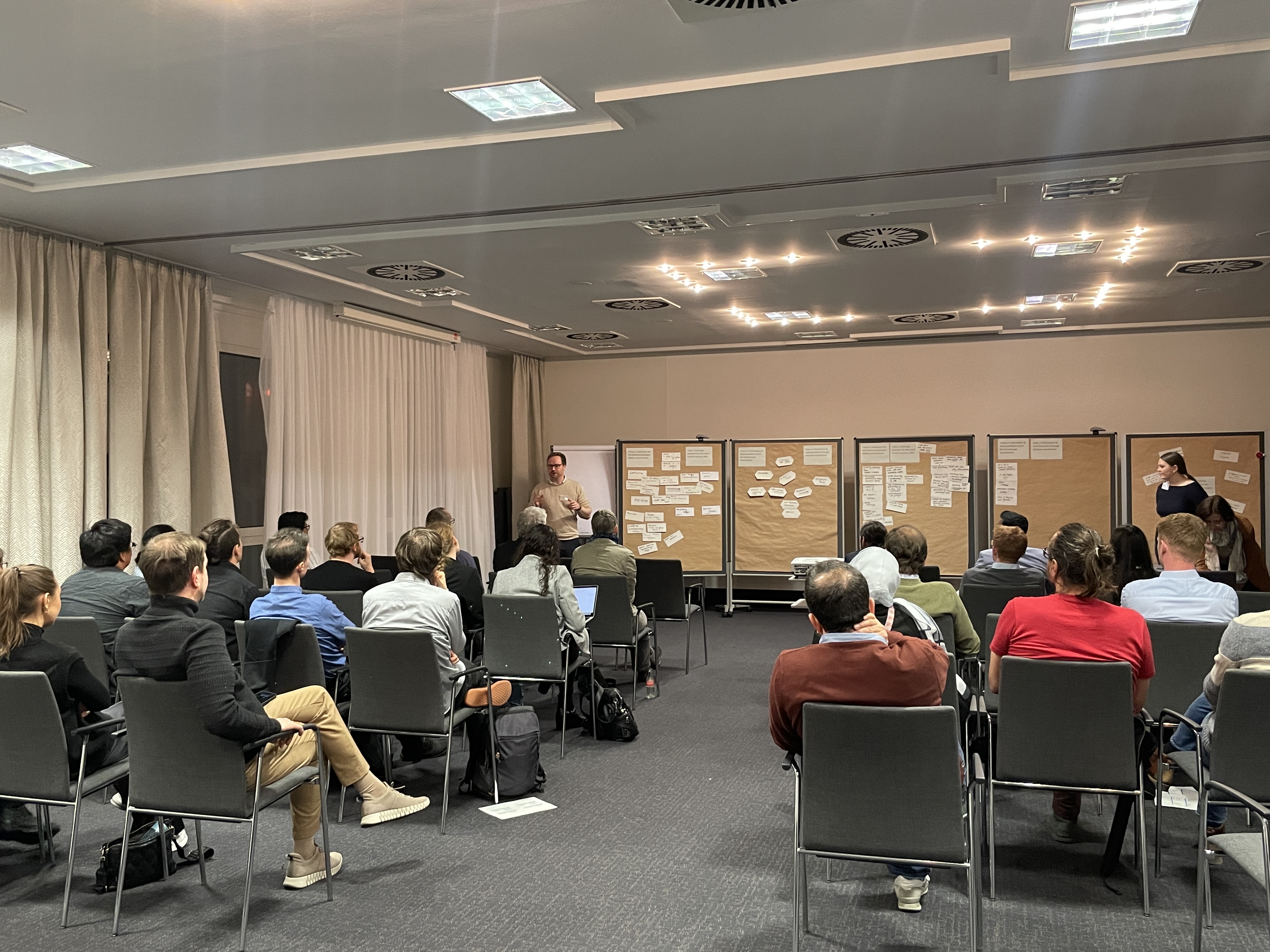Dresden, 24/11/2023. On November 23 and 24, 2023, the first networking meeting of all 21 junior research groups of the Medical Informatics Initiative (MII) took place in Dresden. These junior research groups are funded by the Federal Ministry of Education and Research (BMBF) at the interface of computer science and medicine with around 30 million euros from 2020 to 2026 as a substructure for newly established medical informatics professorships. The junior research groups are intended to support the professorships and be integrated into the work at the universities.
Strengthen professional exchange and integration into the MII
The focus of the meeting was on professional exchange between the various groups. The aim was also to promote the integration of the junior research groups into the MII working structures. Since September 2023, the CDS2USE junior research group has been leading the project "Networking the MII junior research groups" and thus coordinating their exchange. In this context, Anne Seim, Networking Coordinator of the MII junior research groups, and Dr Brita Sedlmayr, Head of the CDS2USE group, hosted a joint exchange at the Dorint Hotel Dresden.
Dr Rainer Girgenrath, DLR Project Management Agency, opened the event. Professor Martin Sedlmayr, TU Dresden, then gave a presentation on "The recent 7 years of the Medical Informatics Initiative". The networking project of the MII junior research groups was then presented. In addition, the results of a survey conducted in September among the junior research groups on the topic of needs and requirements with regard to networking were presented. Each junior research group then gave a brief presentation of their team and their research focus in a pitch and highlighted opportunities for thematic collaboration.
This was followed by keynote speeches on the MII working groups Data Sharing (Jens Weidner, TU Dresden), External Data (Jens Weidner, TU Dresden), Interoperability (Elisa Henke, TU Dresden) and Communications (Anne Seim, TU Dresden). In addition, Dr Christina Schüttler, University Hospital Erlangen, representing the GMDS - German Society for Medical Informatics, Biometry and Epidemiology e.V. presidential committee "Promotion of Young Researchers", presented the aims, tasks and opportunities for the junior research groups. In breakout sessions, the participants were then able to discuss and express their wishes and needs with regard to networking.
The event ended with an outlook on future collaboration. The lively discussions and constructive suggestions from the participants emphasised the need to promote exchange and collaboration between the junior research groups and their greater involvement in the MII.
Background
The aim of the MII is to digitally network routine data from patient care throughout Germany and make it available for medical research in order to treat diseases faster and more effectively in the future. All of Germany's university medical centres are working on this together with non-university hospitals, research institutions, companies, health insurance companies and patient representatives in the four consortia DIFUTURE, HiGHmed, MIRACUM and SMITH. The Federal Ministry of Education and Research (BMBF) is funding the MII with a total of over 480 million euros up to and including 2026. Data protection and data security are top priorities.
The MII has been building data infrastructures at university hospitals since 2018. The MII partners have already demonstrated the benefits of their IT solutions in practice using a wide range of use cases - from intensive care to oncology. The focus of the consolidation and extension phase (2023-2026) is on extended collaboration between the university hospitals and their cooperation with new partners, particularly from regional healthcare.
An important component of this infrastructure is the German Portal for Medical Research Data (FDGP). It is intended to serve not only MII partners, but also all researchers as a central point of contact if they want to use data and biosamples from university medicine. The FDPG is also aimed at the general public. It makes transparent which projects are conducting research with patient data and what results have emerged.
In addition, the BMBF is funding six "Digital Hubs: Advances in Research and Health Care” (2021-2025) as part of the MII. Their task (initially in pilot projects) is to integrate the pioneering work of the university hospitals into other areas of the healthcare system: from outpatient care in practices to rehabilitation and aftercare. To strengthen research and teaching in the field of digital health, the BMBF is also supporting newly established professorships with a total of 21 junior research groups (2020-2026).
A coordination office is responsible for the national coordination of developments within the MII, which is operated by the TMF (Technology, Methods and Infrastructure for Networked Medical Research) together with the MFT (German Association of Medical Faculties) and VUD (German Association of Academic Medical Centers) in Berlin.



